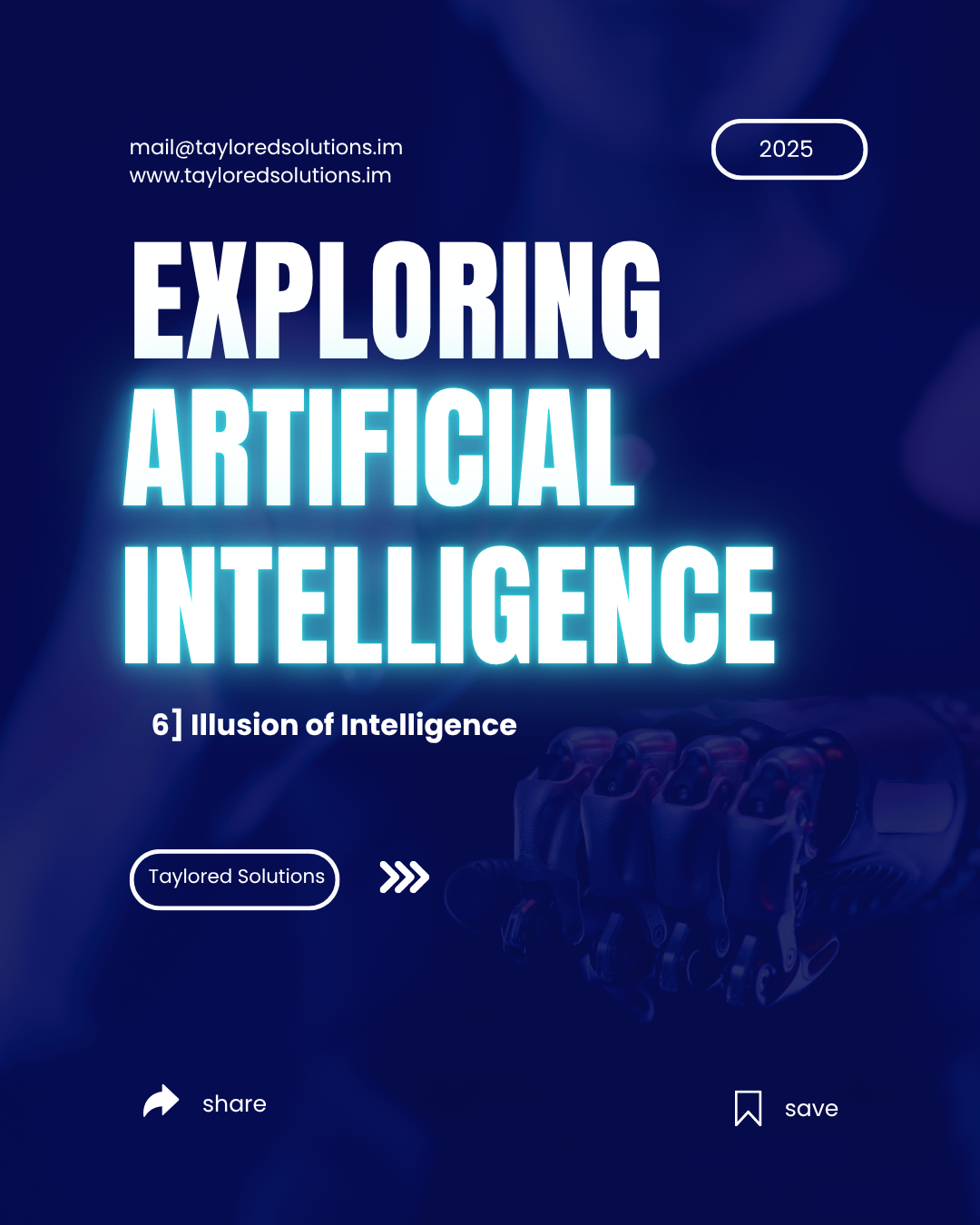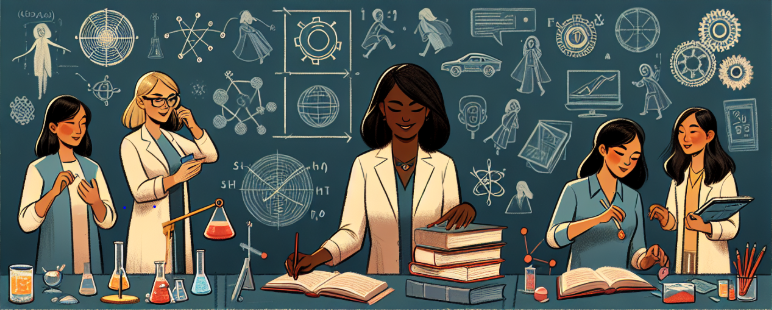Exploring Artificial Intellienge [6]
The Illusion of Intelligence

Artificial Intelligence. The name is misleading. Conjuring images of sentient machines, conscious robots, and futuristic systems capable of deep reasoning. The truth is: today’s AI isn’t truly intelligent. Not in the way many people think.
In this chapter of our Exploring AI series, we’re peeling back some of the layers of the onion (thanks to Dr Colin Moughtin for that metaphor) to explore what AI really is, and just as importantly, what it isn’t.
It’s Not Thinking. It’s Predicting.
AI doesn’t understand the world. It doesn’t think, reason, or form opinions, despite what the interface tells you while you wait for its response.
What it does do is pattern match and make predictions based on the data it’s been trained on.
Large Language Models (like the one I use for researching blogs, topics, references and helps with phrases that sometimes I just can’t make make sense) work by predicting the next most likely word or phrase using vast amounts of training data. That’s it. No comprehension, no consciousness. Just extremely fast and sophisticated guesswork.
To put it simply, it’s not “thinking outside the box.” It’s not even aware if said box exists.
Why It Feels Smart
The illusion of intelligence comes from mimicry. From how convincingly AI systems mirror human communication and conversation. AI can write essays, brainstorm ideas, even tell half decent jokes. It responds in a human tone almost as if you were talking to another person through a chat room.
(Remember those? Now you’ve got a rough idea of my age.)
AI also communicates verbally, you can give them a voice, an image, even assign them a personality to shape how they respond, making interactions feel more human than ever, this is it's mimicry rather than understanding.
Advanced simulation over sentience.
It reflects how well they’ve been trained on human-generated content, rather than it actual understanding.
In truth, today’s AI is advanced autocomplete. Middle-word suggestion on your smartphone taken to a whole new level. When they appear to give thoughtful answers or insights, they’re sewing fragments of previously seen text in a way that seems coherent.
This may read dismissive of the usefulness of AI, this is not the case. AI is a game changer and is something I use on a daily basis. It's limitations need to be understood and never forget the importance of Human Oversight or Human First approach.
Where This Misconception Becomes Risky
The danger comes from mistaking prediction for intelligence:
- Trust AI too much
- Fail to fact-check its outputs
- Expecting it to make moral or human-centred decisions
Assuming AI understands nuance, context, or emotion and you are setting yourself (or your business) up for disappointment or problems.
Worse still, if you are using AI to generate content, write code, or respond to customers without oversight, you risk:
- Spreading misinformation
- Violating compliance
- Damaging your reputation
So, How is it a game changer?
Here's what AI is good at while used with humans firmly in control AI can:
Speed up repetitive tasks, humans would possibly find boring and mundane
- Generate ideas for humans to refine
- Analyse large datasets and identify patterns
- Support decision-making (without replacing it)
- Summarise long documents or meeting notes
- Translate content
- Draft customer emails, blogs, or social posts
- Improve spelling, grammar, and tone
- Assist with deep research, identifying themes, comparing sources, and helping you find relevant information faster
- Help with market research and trend analysis
- Create first drafts of policies, plans, or proposals
- Generate alt text or accessibility content
- Provide basic image or video generation (with oversight)
Think of it like this. AI is an assistant — a really efficient one, impressively capable, but even at that level of competence, it still needs oversight. It’s a powerful tool, but it’s not wise, and it’s certainly not flawless. It doesn’t “know” anything. It generates output based on probability, not understanding.
That’s why critical human thinking is still essential. We should use AI with awareness. Respect its power, but understand its limits.
Believe it’s magic, and you risk disillusionment. Understand it’s a tool, and you unlock real value — safely and strategically.
Whether you’re lifting the bonnet or pulling back the curtain, what you’ll find with AI is less mystery, more mechanics.
So is AI intelligent or just really smart?
Further Reading
If this chapter piqued your interest, here are some excellent resources to explore:
• Artificial Unintelligence by Meredith Broussard
• The Illusion of Thinking – Apple Research 2025
• The AI Con – Business Insider
• Psychology Today – “The Illusion of AI”




